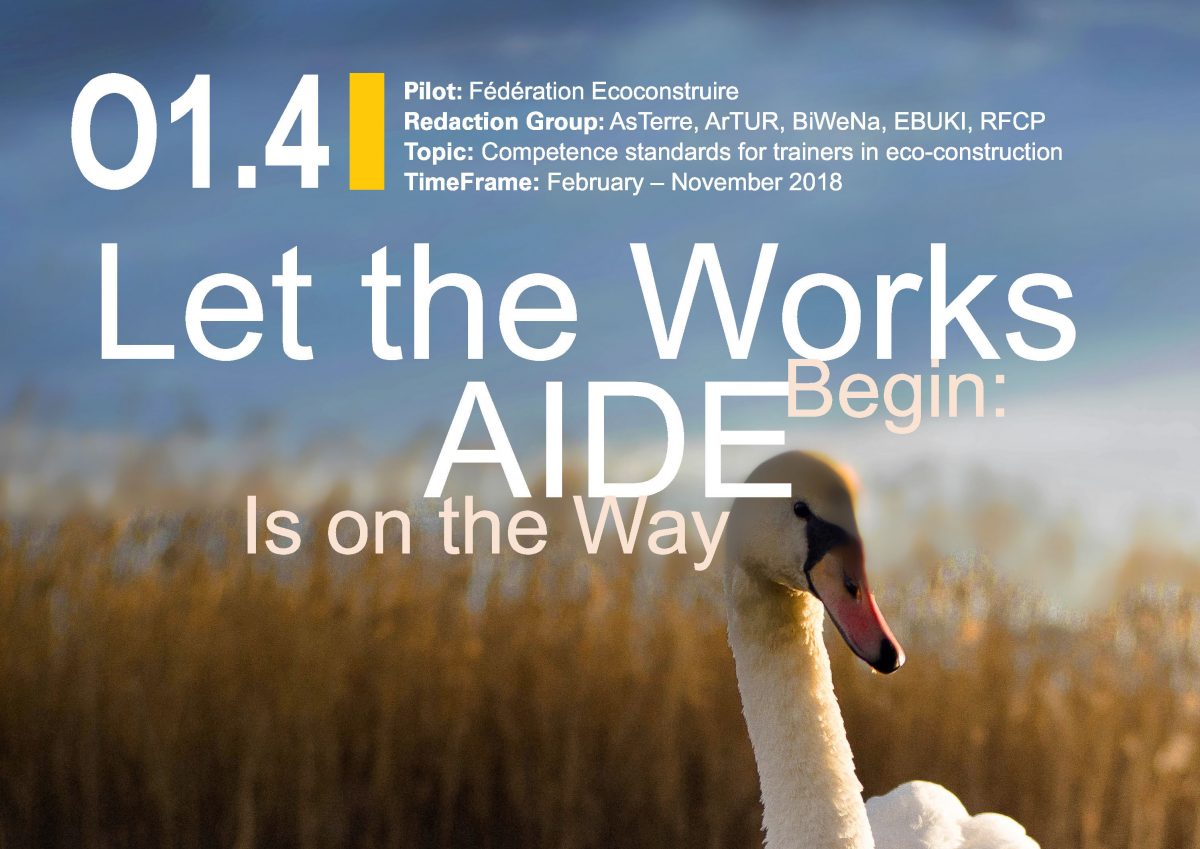
Let the Works Begin: AIDE Is on the Way
We laid our foundations (intentions, O1.1), organized the work groups by defining what trainers in eco-construction do and how they do it (O1.2), and prepared our toolboxes to do the work and measure its quality (O1.3). So now it’s time to bring it all together: We are eco-builders. This has to be specified, in our case focusing on the intangibles (the how) rather than technical skills, construction methods etc.
With this task at hand, we are in the middle of now: According to our work schedule, a draft for O1.4 is due for this very meeting M3 in Austria. Three initial questions were asked to link O1.2 and O1.3 with O1.4:
1. What are the tasks and activities of trainers? (O1.2 extended)
2. What skills, knowledge, competences are needed to fulfill these tasks? (O1.3 extended)
3. What do we need to teach trainers and how? (outlook on O2, learning outcomes and teaching modules)
ad 1. Extending O1.2 was done by interviewing each partners trainers, which resulted in 43 transcript pages. Power to the redaction group!
ad 2. With the specification “complying with ECVET”, after a thorough analysis of the XXI trainer, it did not come out satisfactory: “The content is very general, too ‘neutral’ for our case; construction works and site conditions are not taken into account at all.” On the other hand, the 6 units of XXI trainer have perfectly ECVET compliant learning outcomes. And: there is an attempt to include sustainability (called “green attitudes”) under the transversal competences.
ESCOT has been reviewed also: it has a list of trainer’s skills very close to our O1.2 results (although not taking into account construction site conditions) and puts emphasis on trainers’ identity and trainers’ ethics.
This is how the path ahead might be outlined: Formally following XXI trainer, we have to condense (4 or 5 units instead of 6) and adapt the contents of that programme. The latter using our O1.2-results, the ESCOT skills list and this little AIDE about aspects trainers (not only, but especially) in eco-construction have to deal with:
1. Attention: How can we get people interested?
2. Information: Which knowledge is relevant? How is it to be delivered?
3. Demonstration: Two principle strategies for teaching practical works: repetition (exercices, reversible results, “virtual” building site) and real building situations
4. Evaluation: Assessing the results (manual skills, technical choices, the what, how and why of all that has been done) is essential. It can be done by telling the trainees or encourage them to tell themselves.
Pilot: Fédération Ecoconstruire
Redaction Group: AsTerre, BiWeNa, EBUKI, RFCP, ArTUR
Drafts of Learning Outcomes:
Module 1: Teaching Sustainability
Module 2: Teaching the Change
Module 3: Outcomes, Monitoring & Evaluation
Module 4: Mobilities and Logistic Framework
Latest update of this page: 2019-02-28

